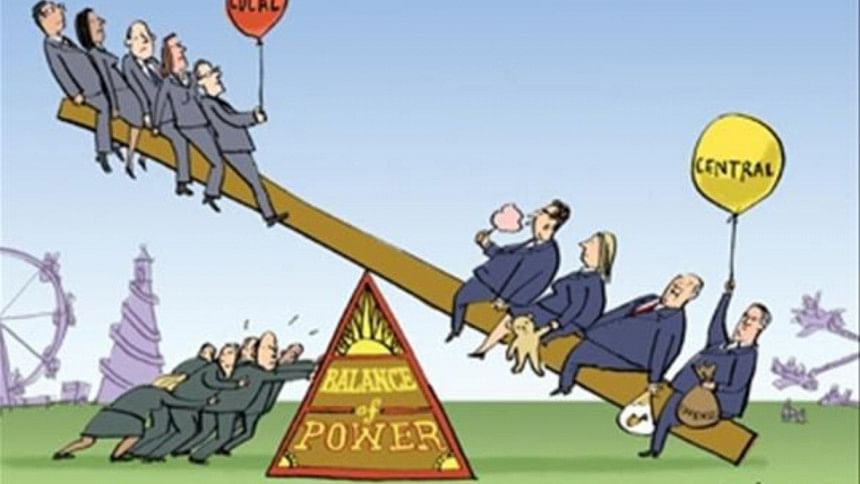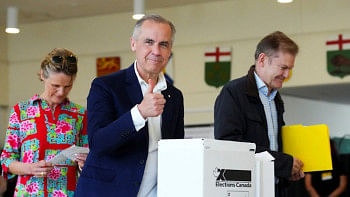Cooperation or interference: MP's role in local government

In the era of modern statehood, the concept of Local Government (LG) has been indispensable in lessening the burden of the central government in service delivery. Local government is considered "a fertile ground for democracy." Indeed, a democracy works when all the people including the most marginalised ones participate in the process of governance, have the capability to ask questions, and can seek accountability. In Bangladesh, LG has been an integral part of the central government, although the latter often exploits the strength of the former to realise its political agenda.
One important way of strengthening democratic institutions without weakening the executive is to make maximum use of local as well as respective committees. Strengthening the local government is, therefore, an essential element of democracy, a prerequisite for ensuring good governance. The Upazila Parishad is midway between local and central governments, and an important tier in the political-administrative nexus. More importantly, to carry out the government programmes, the Upazila Parishad provides a bridge between the local and national governments. As we approach a general election later this month, which will lead to the formation of a new central government next year, it's important that we talk about local government and its importance in the national service delivery mechanism.
The fact is, Members of Parliament in Bangladesh are restricted by the Constitution to only an advisory role in the running of the local government. However, that hasn't stopped central leaders and politicians from getting embroiled in local development projects, using them instead for their own benefits.
Local government for rural development
The local government institutions have the potential to emerge as strong agents of development that can reach out to the local communities and help them identify and work on their own needs. Unfortunately, officials working at the local government level are quite bureaucratic and alienated from the general people, and therefore, people cannot take part in different activities of LG properly. The weakness of its socio-economic base remains a key obstacle in the way of democratic education through LG. Our unequal economic structure allows the ruling class to exercise undue control over the local bodies. They often tend to serve their own interests and purposes. As a result, LG cannot render proper services to the people at the local level. Besides, the presence of local elite dissuades the general public from participating in the LG, which results in a less effective governance system.
MPs in local government and the constitutional obligation
The representative role of a Member of Parliament (MP) could be categorised into three dimensions: a) political representation, b) representation of social diversity, and c) constituency representation. Constituency representation places particular focus on the parliamentarians' involvement in local development work through local government bodies. Local government bodies in every administrative unit of the republic are the major actors in the field of local development work. What the parliament can do for local governments is also defined in our Constitution. As stated in article 60 of the Constitution, "Parliament shall, by law, confer powers on the local government bodies, including power to impose taxes for local purposes, to prepare their budgets and to maintain funds."
Article 25 of the Upazila Parishad Act 2009 keeps the provision for MP's role in the Upazila Parishad as "Adviser". According to this article, the Upazila Parishad will have to take or accept the advice of the MP concerned, who is neither elected to the Upazila Parishad nor has any voting right in it. Again, article 42 (3) of the Upazila Parishad Act 2009 allows the Parishad to plan local development in consultation with the local MP. As Adviser, MPs should monitor different activities of the local government bodies from a distance, just to ensure that they follow the parliament-adopted policies. But the provision of constituency services by the MPs, through control and partisan distribution of public resources, aggravates the probability of corruption and conflict of interest.
MP's influence in Upazila Parishad
As stipulated in the Upazila Parishad Act 2009, an MP's role as Adviser to the local government bodies is not ideally conflicting as long as the MP is mindful of the wellbeing of the people in his/her constituency. However, the reality is, the "advice" of MPs often turns into an "executive order", overriding and controlling development plans and actions by the elected representatives at the Upazila Parishad.
In many cases, the MP nominates his/her party loyalists in the selection committees and beneficiary lists of the social safety net programme, making sure that the beneficiaries of Food for Work, Vulnerable Group Feeding (VGF), test relief, old-age allowance and other programmes come from the followers of the political party that the MP belongs to. The Committee of the Upazila Parishad is perceived to be an important apparatus to make the Upazila Parishad accountable for its actions. The MP could nominate a representative to these committees ensuring his/her representation in the discussion, decision and development planning. The MP's representative will naturally always try to impose the likings of MP in the decision-making process.
The MP's "advisory" role is glaringly absent which results in the futility of the committee system at Upazila Parishad. The MP's non-cooperation and undue influence bars the local government system from turning into an effective one. But the success of the Upazila scheme largely depends on how well the local leadership, MPs and the general people interact in an environment of cooperation and partnership.
Making Upazila Parishad effective
To overcome the development paradox centring around the power struggle between the MP and the Upazila Parishad Chairman, a culture of accountability is a must and has to be created by the political party or coalition in power. While decentralisation is a significant catalyst for sustainable development in rural Bangladesh, the prevailing servant-master relationships between MPs and bureaucrats and locally elected representatives need to be changed, and mutual understanding in the decision-making process should be fostered. MPs must bear in mind that they are elected by the people of their constituencies and could be unseated in the next election if they fail to look after their interests. Therefore, a strong political will is required for the effectiveness of the LG as a democratic body in a true sense.
To make the development work really meaningful and sustainable, the "bottom–up" approach of development that involves people directly in the making and implementing of decisions at the UZP is the need of the hour. Furthermore, to make development truly meaningful, involving people directly in the formulation and implementation of decisions is also crucial. This necessitates decentralisation of democracy down to the lowest level. One can only hope that our political parties and relevant stakeholders including leaders of the local communities will take lessons from past problems and overcome them for the greater interest of the nation.
Mohammad Tarikul Islam is an Assistant Professor of Government and Politics at Jahangirnagar University, and Visiting Research Fellow at the University of Oxford. He can be reached at [email protected]





Comments